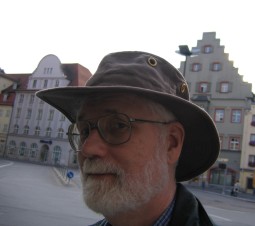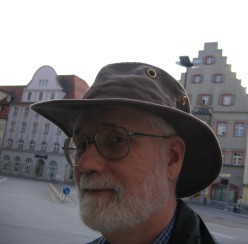Been cheating lately? Doubled over with gut-wrenching guilt? “As long as you didn’t think your cheating hurt anyone,” recent research tells us, “you may have felt great” or even” elated, thrilled, self-satisfied, superior and positive.”
Subjects in some experiments “adjusted” their scores upward when reporting them, and then felt a “cheater’s high” afterward. We’re supposed to be surprised that cheaters feel great. Conventional wisdom assumes that cheating is a function of your conscience—your “should” voice—like a memo from the boss in your head. A moral outlook, says traditional theory, is the default position in personality.
But deception is at work everywhere in nature. Among our primate cousins, marginal animals may have to cheat with one of the boss’s girlfriends to have a life—tell me they don’t enjoy “the cheater’s high.” And humans are social animals. We fib all the time to grease social life and get a little extra edge on others. Our evolutionary past as scavengers may show up in the slang for cheating: “to get away with something.” In this way cheating is a bid for privilege and self-esteem that would lose its magic if cheaters talked about it.
Remember: the self’s not a thing—you can’t take it out to dry clean it. The self’s an event shaped by (ahem) “give and take” with others. We shape each other and ourselves as we go. We usually have a core sense of “what is right” that’s instilled in us from birth, long before we can remember. We spend most of our lives testing and sorting out “what is right” and “give and take.” That’s what culture is, and it’s always a work in progress.
Consider the experiment that discovered that subjects who doctored their scores enjoyed a “cheater’s high.” In cultural terms, the experiment itself is a test in hyper-competitive America, where tests increasingly govern school, business success, and self-worth. If tests seem like factory hoops to jump through, you might put your wishes first. After all, more self-esteem = more life; and being a “loser” = social death, so cheating, like food and sex, is a pretty basic motive. If a culture really rewards honesty as a heroic value, then “honor” can offer “more life” as cheating does. If you locate such a culture outside of books, let me know. Christian cultures have traditionally projected a melodrama in the beyond in which honesty = immortality and the cosmic Father’s love, whereas cheating = eternal heartburn. Not to worry: cheaters are not an endangered species.
So maybe everybody cheats a little. What’s the problem?
Well, cheaters enjoy the high when they believe nobody’s hurt. it’s a balance, an eco-system, of lies. But cheating has no natural limit. Fudge test scores today, doctor Wall Street books tomorrow. Before long paranoia howls at everything from climate science and food stamps to wedding rings. Who can you trust?
“Unethical behavior is increasingly studied by psychologists and management specialists,” says the report. They have their hands full. The same forces that are immortalizing billionaires and wiping out the middle class inspire cheating. If the alpha animals have all the power and are unaccountable behind blacked out limousine windows, you suspect they’re cheating. If you fear being on the bottom near social death, of course you’re tempted to cheat.
Research tells us that many CEO’s not only cheat: they qualify as psychopaths. In the 2008 finance scandals that nearly blew up the global piggy bank, nobody at the top was punished. Government fined criminal corporations, but investors paid the bill, not executives. As the world economy has rebalanced and US incomes have stagnated, the nation has suffered an epidemic of business fraud, from crooked banks to Enron, from Bernie Madoff to “liar loans.” With ”free market” ethics in the wind, business has been hoisting the jolly roger.
Complexity and global scale make policing business crime difficult. But alpha money has also put watchdogs to sleep. The mental hijinks can be baffling. “Conservatives” cut the IRS budget in order to make tax-cheating easier. The Chamber of Commerce lobbies to keep the bottom underemployed and hungry, and rationalizes that such cheating isn’t hurting anybody because “they don’t want to work,” etcetera. The fear of the bottom makes American justice hysterically brutal to the poor, with scandalous prison numbers, especially for poor black males.
How do we know when a little cheating is too much? A live question. If your sense of “what is right” is harmed, the world feels unfair and hostile. But the damage is not only to the world, but to you. If you can’t find work, can’t escape from debt, can’t—well, you get the picture.
The core example is the war veteran sickened by PTSD. I’m thinking of the PBS documentary “A Matter of Duty,” which follows efforts to heal returning veterans in Maine. They suffer from drugs, ailing economy, and war-induced demons. They’re soldiers, ordered to “suck it up,” silent about the leadership fraud that used phony pretexts to go after Iraqi oil, enriching “defense” corporations and losingskid pallets of the taxpayers’ shrink-wrapped fresh $20 bills (for real). Much of the country was caught up in “cheating a little” until suddenly it was a sticky nightmare of guilt and pain..
The veterans have seen and sometimes done atrocious things. They’re prone to chronic anxiety, rage, and jail sentences. They shoot up and drink, well-aware that they’re “self-medicating.” When Peter says, “I feel guilty,” he’s trying to square his sense of “what is right” with the suffering he caused. Peter died a few months later, with suicide suspected. A woman veteran who was raped (actually more men than women), feels shamed, dirty, helpless, and betrayed. She believed.
Here’s the sting: nobody in the film, not therapists or law enforcement, ever acknowledges the core of the suffering: the falseness. Bumper stickers call the men heroes, but they feel guilty and angry because they were saluting a lie, paid to invade a country not protecting family back home: betrayed by leaders and rapist “buddies.” If you sign up for heroism and are given guilt, there’s cheating going on, and you’re involved. No wonder the world seems full of predators to them. No wonder they mistrust themselves. No wonder they feel angry and crazy: even their supporters are having trouble with denial. The documentary ends with flags, a bugle playing taps at a cemetery, and the latest group of recruits being sent off to Afghanistan with a flowery speech to shut down some operations there.
The veterans, you can see, need to restore their trust. That sounds glib in a tragic world in which the word “hero” has been trivialized. Traditional wisdom says: understand, forgive, rebuild, help the stranger next to you. Raise the kids, tell the truth. Like it or not, we’re all signed up for that experiment.
Resources used in this essay:
“A Matter of Duty: the Continuing War against PTSD,” Jennifer Rooks and Charles C. Stuart, PBS.
Cheating Culture: <<http://www.cheatingculture.com
Carrie Barron, M.D., “What’s Up With Cheating?” in The Creativity Cure, Psychology Today online <<http://www.psychologytoday.com/blog/the-creativity-cure/201310/whats-cheating
Cheryl Chumley, “10 Top psychopathic professions,” Washington Times, March 21, 2014.
Kirby Farrell, Berserk Style in American Culture
Jan Hoffman, “Cheating’s Surprising Thrill” (NY Times, 10.07.13) <<well.blogs.nytimes.com/2013/10/07/in-bad-news-cheating-feels-good/
Timothy Noah, “The Justice Gap,” NY Times, April 10, 2014.
Nicole E. Ruedy et al, “The Cheater’s High: The Unexpected Affective Benefits of Unethical Behavior,” The Journal of Personality and Social Psychology << http://www.apa.org/pubs/journals/releases/psp-a0034231.pdf (Nice bibliography.)
Jonathan Shay, Achilles in Vietnam (New York, 1983)


